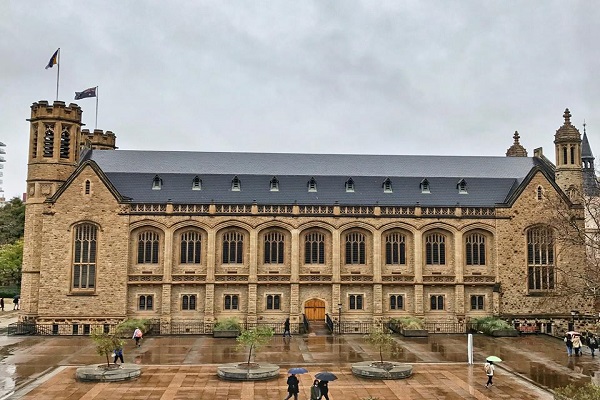University of Adelaide: Riverland bootcamp boosts AgTech innovation
The two-day ThincLab Agtech Innovation Bootcamp, organised by the University of Adelaide’s ThincLab business incubation team, will be held in Renmark.
“Innovative ideas are the driving force which bring progress to businesses in every sector of the economy,” said the University of Adelaide’s Professor Noel Lindsay, Dean of the Adelaide Business School and Pro-Vice Chancellor (Entrepreneurship).
“The bootcamp will stretch participants to solve real-world problems, generate ideas, while being part of a community of like-minded people who want to take on challenges to benefit everyone.”
Budding innovators will use the bootcamp to test their ideas through immersive workshops like an intro to AgTech and emerging technologies. Participants will be able to discuss, iterate and test ideas, and get real-time feedback from a group of industry, AgTech experts, entrepreneurs, and researchers in a supportive and collaborative environment.
The bootcamp will be held on Wednesday 15 and Thursday 16 June at the Renmark Club, Renmark.
Teams from schools and businesses, as well as University of Adelaide students, will work on three challenges:
“The bootcamp will stretch participants to solve real-world problems, generate ideas, while being part of a community of like-minded people who want to take on challenges to benefit everyone.”
Professor Noel Lindsay, Dean of the Adelaide Business School and Pro-Vice Chancellor (Entrepreneurship)
Picking approaches (Sponsored by AusIndustry)
The Riverland’s diverse produce, which includes citrus fruit and almonds and 50 per cent of Australia’s wine grapes, all requires picking. Participants will be asked to find innovative ideas to improve picking and harvesting processes.
Activating RIT vacated land (Sponsored by Renmark Irrigation Trust)
The Riverland Region has a large amount of land sitting idle. The vacant blocks are included in the Renmark Irrigation Trust and require drainage and irrigation, and yet are still empty. Participants will be challenged to find creative and productive ways to activate this vacated land.
Access to data and digitisation
Data and digitisation can provide agricultural insights that enable farmers to make well-informed decisions, resulting in improved yields, outcomes, and profits. The bootcamp teams will be tasked to make data more accessible, usable, and valuable to the farming community.
Prizes will be awarded to the teams which come up with the most innovative solutions.
Results:
Prizes were awarded on Thursday June 16 to the teams with most innovative solutions:
The ThincLab first prize went to EcoSystem Farms for the idea of planting high-value crops in vacant blocks of land such as ginger, lemongrass and orchard trees in gravel not soil, using clean but minimal water provided by land-based aquaculture.
The ThincLab second prize was won by Agricultural Science students Courtney Lean, Emma Knowles (both from the Riverland), and Alex Newbold, who proposed producing and harvesting low-cost and drought-tolerant Agave plants to make tequila, tapping in to the rise of boutique alcohol distilleries in the region.
The ThincLab Third Prize was awarded to Farmadise, comprising of Dhanush Pradeep, Navyanth Nambiar, and Samed Altundag. The Masters of Construction Management alumni’s prize winning idea was a digital platform connecting all stakeholders in the food and agricultural industry, empowering farmers and eliminating third-party brokers.
The ‘Picking Approaches’ challenge won by current students of Agricultural Science, Computer Science, and Engineering, Conor Barry, Hitasha Singh, Raja Mandava, Sreshtha Malik, and YiMing He. Aimed at innovating the picking and harvesting process, their idea involves spraying a specialised genetic hormone formula to make fruit detach from the tree within 24-48 hours, giving farmers time to set-up nets to collect the crop, minimising damage.
The Activating Renmark Irrigation Trust (RIT) vacated challenge was best conquered by ThincLab residents Gonzalo and Santiago, local high school student Zane, and Renmark local Leigh for their idea of a modularised, expandable farm that is easy and cheap to scale, which would increase the diversity of the Riverland’s horticulture industry.

